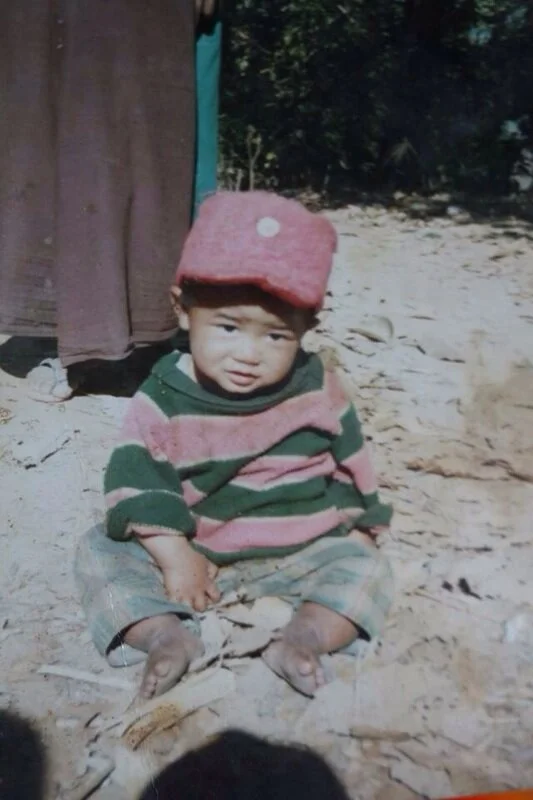My Story: Bawi Za Kham
While working on this program, we looked for young people who could speak about the experience of living in Burma as the country goes through some major changes. We met Bawi Za Kham through one of his teachers, Deb Fowler, shown here. He inspired her (and us!) with his courageous story of leaving Burma to pursue his education, and his endless drive to help his family. Some of Bawi's story is below.
I was born in Aasaw, a small village located on a mountain ridge in Chin state. There’s no electricity or running water. My first memory from my village is taking care of the animals — water buffalo, cows, horses, and pigs. My family and I raised animals to pay for food and school. Their care was my responsibility from the age of five until I left the village at age 13.
Education is limited to the few who can afford it, and only a handful actually graduate high school. I used all my strength and my instincts to survive hiking 45 miles to the border of India to sell the animals that my family and I raised so that I could pay for school.
In the village, mostly we only ate corn. We could only eat rice and meat on Sunday or a holiday. We used to eat mice and fish that I would catch with a net. If people had money, they would kill a lot of fish with a bomb. It doesn’t take a lot of time to catch a lot of fish that way. Asparagus grew everywhere in the forest, but we only ate it if we were really hungry or there were no other options.
I lived with a blended family, which meant two or three families shared a thatched home. Sometimes I would not have a place to sleep because we would have a visitor from another village. On those nights I would sleep at a friend’s house, or sleep under the stilts with all of our shoes. I didn't have shoes until I was 11. I kept them in a box to keep them clean, until I outgrew them.
Every year, one family from each religious sect would host Christmas for the others. About half of the people in Aasaw were Baptist, a little less than half were Catholic, and the rest followed the Assemblies of God. It wasn’t a law, but we didn’t celebrate with other denominations. Christmas was and still is the most important holiday in the village. It was the day when we got to wear our best clothes, the clothes that we never wore on a regular day. We would eat at long tables together. The religious leaders and elders and other leaders of the village would eat first, then parents, then Sunday school students, then us.
When I was 12 I lost my grandmother. I could not bear to walk past the place where she was buried. Each time I walked past was a cold reminder of my beloved grandmother's hope to stay alive until I grew up. My mother was not around to take care of me, and my uncle had five children to send to school. If I had stayed, I would have been forced into child labor, or I would have become a soldier for the Burmese Army. So in 2008, I left Myanmar for Malaysia.
When I finally got to Malaysia, I worked twelve hours a day, seven days a week. I did not have the time, the money, or the opportunity to attend school. I lived with 30 people in one apartment so that I only had to pay 50 RM, about $15 US, each month.
Working on my own and living in a crowded apartment, I thought of my cousins, my grandmother, and the countless times I played soccer with my family. Thoughts of my family and my village overwhelmed me, and also led me to a realization. I always knew that I loved my family, but I realized that we also needed each other to succeed. As a result, I have always tried to provide financial help for my family and be there for them when they need it. I feel that I am as responsible for them as I am for myself.
I wish to visit Myanmar again after I am done with school, and spend time with my relatives and friends. Until then, I have to focus on what’s in front of me, which is starting college as soon as possible, studying hard, and getting my degree.
Bawi Za Kham is planning on attending college in September and wants to study engineering.
Image Credits (from top): Bawi at nine months old with his parents; Bawi in Aasaw at two years old; Bawi receiving an award from his school principal in fourth grade; and a photograph of Bawi's friends who still live in Aasaw, taken in February 2015.




